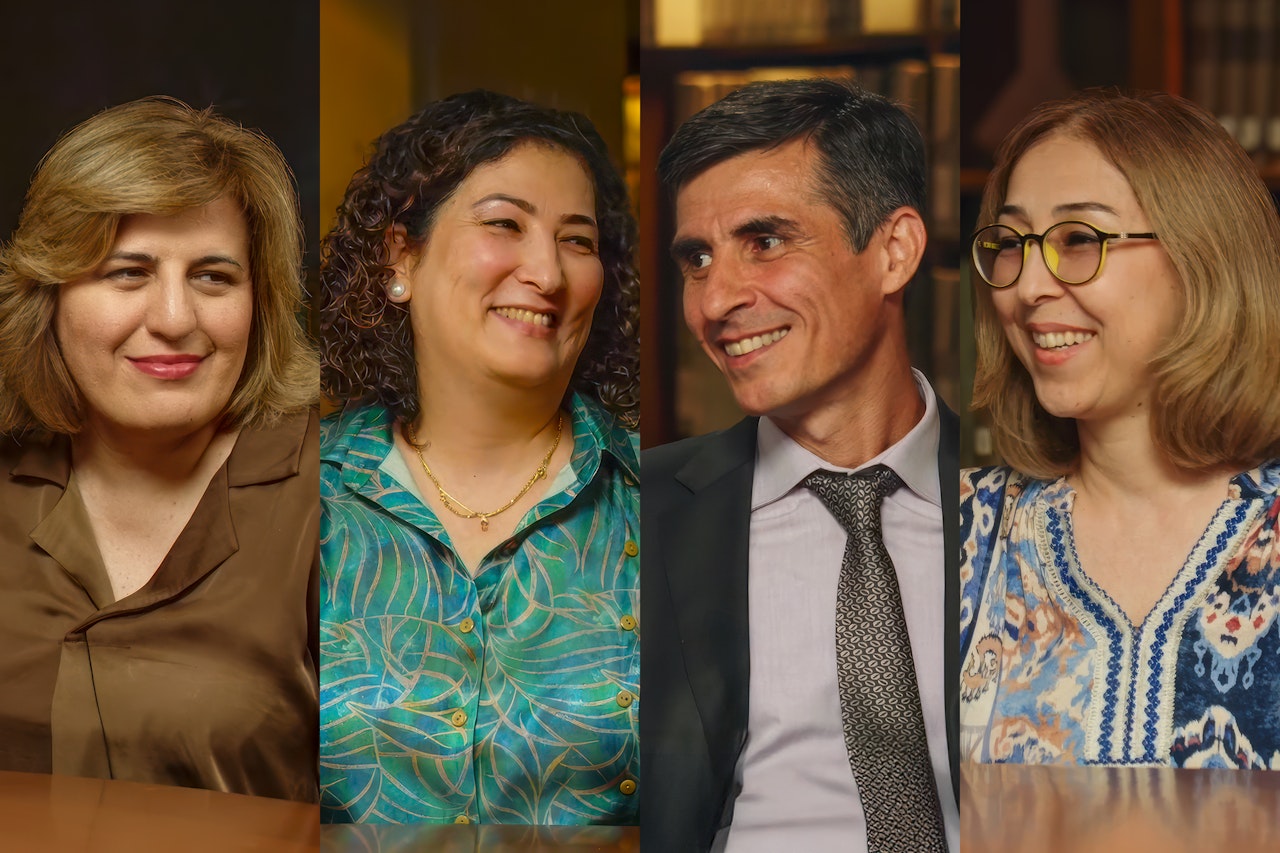
InConversation
Hope inspires action in Central Asia
This podcast episode explores how young people in the Caucasus and Central Asia are overcoming social barriers and contributing to the betterment of their communities.

This podcast episode explores how young people in the Caucasus and Central Asia are overcoming social barriers and contributing to the betterment of their communities.
BAHÁ’Í WORLD CENTRE — In the latest podcast episode of “In Conversation,” four members of the Board of Counsellors explore efforts to contribute to social progress in several countries across the Caucasus and Central Asia, from neighborhoods in Ashgabat, Turkmenistan, to Tbilisi, Georgia.
They discuss how Bahá’í principles such as consultation, unity in diversity, and the equality of women and men are inspiring youth participating in moral and spiritual education programs to analyze their social reality, identify and address different needs of their neighborhoods.
In many families within these neighborhoods, there are glimmerings of advances in cultural attitudes towards women. Zebinisso Soliyeva, from Kazakhstan, says, “It is very inspiring for neighbors when they observe how attentive a father is to the education of his children, not just providing the means, but he himself assisting with teaching morals to his children, together with his wife.”
Ozoda Zoidova, from Tajikistan, emphasizes how such developments represent glimmerings of “the maturation of humanity.” She explains that social progress gains momentum as the circle of people who contribute to youth and children’s education grows.
When youth participate in education programs that build their capacity for service, says Ms. Zoidova, “they become hopeful in their personal lives, in their families, in serving their communities.”
Jamil Aliyev, from Kyrgyzstan, describes the trepidation that young people sometimes feel when they decide to contribute to the betterment of their community. Mr. Aliyev shares an account from his own neighborhood, explaining that some youth initially had reservations about organizing weekly devotional gatherings, fearing that their peers would not be interested in reading prayers together. “The gatherings now attract new participants each week and have evolved to include sessions where youth come together and reflect on their neighborhood,” he said.
Reflecting on what makes devotional gatherings inspiring, Mr. Aliyev explains that youth “start to think about how they can help others, especially those younger than themselves. They begin to understand that they are an example for others.” He adds that the experience of collective action and meaningful conversations among their peers “elevates their souls.”
Gulnara Eyvazova, from Azerbaijan, shares an account from Tbilisi, Georgia, where a neighborhood comprising people of many nationalities organized a festival in a nearby courtyard. These festivals have evolved into spaces where neighbors feel at ease addressing common challenges together.
“We see Ukrainians and Russians together in the same group, sitting and talking,” says Mrs. Eyvazova. She describes the hope that this brings to all, seeing different people addressing similar challenges such as “how their children can integrate into society and be friends.”
The podcast episode is part of the “In Conversation” series, a collective exploration by several individuals of the practical application of Bahá’í principles to the building of peaceful societies.